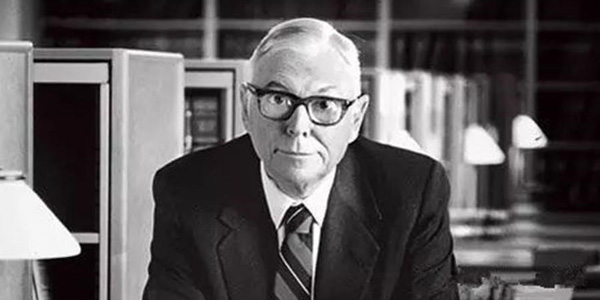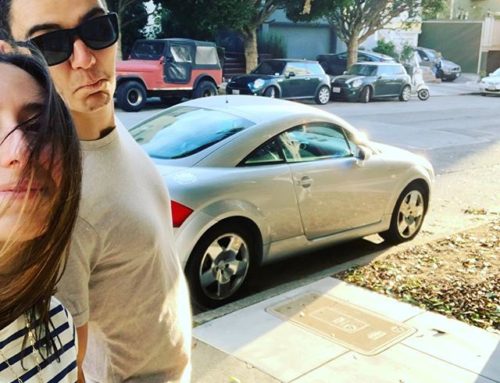World Weightlifting Champion Jerzy Grgorek once said “easy choices, hard life; hard choices, easy life.”
Gregorek’s quote provokes us to make the difficult decisions that lead to success in the long run. Eat the salad over the french fries. Take the stairs, not the elevator. Disciple equals freedom, as former Navy SEAL Jocko Willick has trademarked.
It’s implied that these easy decisions – the french fries, the elevator, the white lie to your spouse – will lead to some sort of failure. And in the long run, he’s right. One french fry won’t kill you, but if you eat it every day for lunch?
What’s interesting is that it’s much easier to predict what will cause failure than success. If you show up to work every day this week, I can’t promise you’ll get a promotion or even a slight pat on the back. But if you blow off your responsibilities with no heads up to your boss you are sure as hell going to be fired.
The truth is, there’s no formula for the most valuable things in life: happiness, love, success.
So when Charlie Munger gave the commencement speech at Harvard in 1986, he took his focus away from success. He chose to focus on avoiding misery.
Munger is the business partner of Warren Buffet and Vice-Chairman of Berkshire Hathaway. Buffet’s right-hand man is worth almost $2B.
He followed up on a similar speech Johnny Carson gave to the university years earlier. Carson’s three tips for guaranteed misery are:
- Ingesting chemicals in an effort to alter mood or perception;
- Envy; and
- Resentment.
Munger not only wholeheartedly agreed with these first three principles, but added an additional four to guarantee misery.
The first tip for misery, Munger says, is to be unreliable. Put simply, don’t do what you say you’re going to do.
“Master this one habit and you can always play the role of the hare in the fable, except that instead of being outrun by one fine turtle you will be outrun by hordes and hordes of mediocre turtles and even by some mediocre turtles on crutches.”
The second prescription for misery is to learn everything you possibly can from your own personal experience, minimizing what you learn from others, both living and dead.
Don’t learn from others’ mistakes. Don’t read books, don’t ask for advice, be as uneducated as possible.
Sir Isaac Newton once said that “If I have seen a little farther than other men it is because I stood on the shoulders of giants.” Newton clearly didn’t follow this key rule for misery.
Munger’s third prescription for misery is “to go down and stay down when you get your first, second, third severe reverse in the battle of life”.
There are infinite amounts of stories of people who were down on their luck or born into unfathomable situations, only to come out massively success. How is this possible? When they were down, they got back up.
“It’s not how many times you get knocked down that count, it’s how many times you get back up.”
– George Custer
Finally, Munger’s last prescription for misery is to avoid the story of a man who said: “I wish I knew where I was going to die, and then I’d never go there.”
Most dismiss this as a quirky story or a throwaway line. What they don’t realize is that this is the whole point of Munger’s speech.
The great algebraist Carl Jacobi famously coined the phrase “invert, always invert.” He made breakthroughs by flipping most problems on their heads and found that most complex problems are easier when solved backward.
Munger believes wholeheartedly in this strategy.
It’s impossible to get on a stage and tell thousands of bright-eyes 22-year-olds how to be happy in life. But Munger didn’t do that: he inverted the question.
You certainly can’t be both miserable and happy at the same time. Giving the formula to avoid misery is the clearest way he could coach others to be happy.
It works in most of life’s major areas.
I can’t tell you how to have a great relationship, but I know if you are selfish, lie and cheat, you’re sure to fail.
I can’t tell you how to be rich, but if you constantly spend more than you make, you’re sure to fail.
I can’t tell you how to run a marathon, but if you never leave the couch, you’re sure to fail.
Munger and Carson bring a lot of wisdom in these speeches.
I doubt anyone on their death bed wishes they drank more mimosas, or felt more envious of people.
You can apply their wisdom to your life right now.
Take that question you’ve been struggling with. Yeah, the one that woke you up in a panic last night. About your business plan, your relationship, the bad habits you can’t shake.
Invert the question.
If you were to fail, how would you do it?
Find out where you’re going to die – and then never go there.
(You can read Munger’s entire speech here.)
Sign up for the weekly Millennial Momentum Newsletter. No BS, All hustle




















